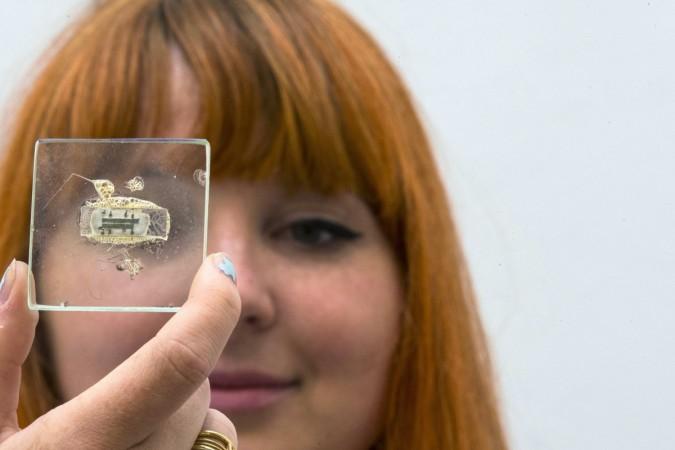
A remote-controlled chip that can be used as a contraceptive has been developed by a start-up company funded by Bill Gates, in Massachusetts, which could possibly hit the markets by 2018.
The chip, which is yet to be fully tested, has been developed by MicroCHIPS from Lexington, Massachusetts. This chip, which is no bigger than a fingernail (20mm x 20mm x 7mm), can be implanted under the skin of the woman on the buttocks, abdomen or the upper arm. Once implanted, it can last for up to 16 years, which is nearly half the reproductive life of an average woman.
This chip successfully does so, by secreting an amount of levonorgestrel, which is a hormone that is commonly used by a number of contraceptives. Every day, this chip sends an electric charge, which melts a thin seal, that would allow levonorgestrel into the body.
When the woman wants to conceive a baby, she merely has to click a button on a remote control, which would stop the contraceptive from working. This provides a great advantage, as people often forget to take the contraceptive at the correct time. However, this button is the main reason why this product is still being developed in the lab.
"Communication with the implant has to occur at skin contact level distance," said Dr Robert Farra, of the Massachusetts Institute of Technology (MIT). "Someone across the room cannot re-program your implant. Then we have secure encryption. That prevents someone from trying to interpret or intervene between the communications."
Even though the highlight of this contraceptive is its remote control feature, it seems to be its biggest barrier right now.
However, some scientists believe that this technology could be used to treat a vast array of diseases, rather than just using it as a contraceptive. "This is a humanitarian application, as opposed to satisfying a first world need," revealed Gavin Corley, a biomedical engineer, to the BBC.
The idea behind this chip has presumably been conceived by Bill Gates and his colleagues, a couple of years back. Gates asked to Robert Langer of MIT, whether it would be possible to create a contraceptive that a woman could turn on and off at her own will, and one that she could use for a very long time. This triggered Langer's imagination, as he thought that the controlled release microchip he had invented in the 90s, with the help of Michael Cima and John Santini, could be of great help.













!['It's not Mumbai traffic, it's air traffic': Suriya apologises to Mumbai media after paparazzi yelled At Him for making them wait for hours [Watch]](https://data1.ibtimes.co.in/en/full/806234/its-not-mumbai-traffic-its-air-traffic-suriya-apologises-mumbai-media-after-paparazzi.jpg?w=220&h=138)



